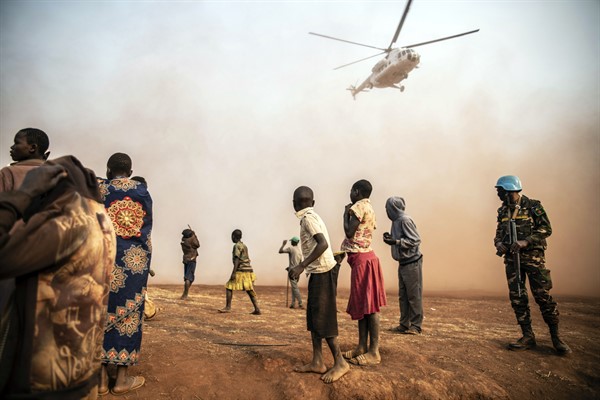The seven member states of the East African Community have agreed to create a regional military force to be deployed to eastern Democratic Republic of Congo. The bloc’s leaders announced the decision at a special meeting on Congo held last week in Nairobi at the request of Kenyan President Uhuru Kenyatta, who currently serves at the EAC’s rotating chairperson. The bloc also appealed to the African Union and the United Nations for support for the initiative, which is designed to end decades of bloodshed caused by militant activity and bring peace and stability to eastern Congo, a call the two bodies appear to have heeded.
The AU has endorsed the EAC proposal, with Commission Chairperson Moussa Faki Mahamat commending the bloc’s leaders “for their common efforts in finding a sustainable solution to the situation in eastern DRC and the Great Lakes region as whole.” For his part, U.N. Secretary-General Antonio Guterres also praised Kenyatta’s efforts to foster peace in Congo, writing in a tweet that the global body “fully supports” the initiative by EAC members to bring stability to Congo and its neighboring countries. In a separate statement, Guterres emphasized the need for coordination between the proposed regional force and the U.N.’s stabilization mission in Congo, while calling on local armed groups to participate in the political process.
The Nairobi talks come just over a month after Congo joined the East African Community, becoming the bloc’s seventh member. Congolese President Felix Tshisekedi signed the treaty of accession on April 8, formalizing Congo’s membership. Given that Congo is Africa’s second-largest country by area, its third-most-populous and its 12th-largest economy, its accession to the EAC is widely considered to be a significant achievement for regional integration efforts. But if Congo’s 90 million people, vast array of natural resources and range of common cultural characteristics with its neighboring countries represent a potential boon to what is an already dynamic economic union in Africa, there are nonetheless fears that those efforts to bolster economic and commercial ties could also exacerbate problems of regional insecurity.

